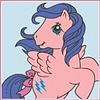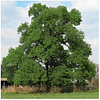You need to sign in or sign up before continuing.
Take a photo of a barcode or cover
So well written, and it's always good to recognize a street the character is walking down as one you've just walked down yourself. Quirke may sound like a stereotype, but read this and you'll find him a real and changeable character.
challenging
dark
mysterious
reflective
sad
tense
slow-paced
Loved the setting and the characters, but the simple-minded and suspense-less mystery was eventually irritating. This may be a fault of Black's particular take on mysteries (he is well-known as novelist John Banville). This sort of mystery is a corrective for the type where there is far too little said about the investigator and his or her life--in this case, there is far too much, yet it doesn't really tie in to the mystery itself. (Read Banville's "The Infinities" for better entertainment value.)
John's third in this series but my first thanks to a friend, a racy psychological crime thriller with a potpourri of characters vying for varying shades of grey. I kept on imagining this as a Turner Classic movie - black and white in my head as the protagonist tugs at each open thread jumping from place to place.
Hooter: His daughter's missing friend from a family full of dark secrets has Quirke in the midst of another psychological crime thriller and he literally stumbles through it.
Hooter: His daughter's missing friend from a family full of dark secrets has Quirke in the midst of another psychological crime thriller and he literally stumbles through it.
I get cranky with characters determined to be unhappy, and this book seemed full of them. It was very well written, enough so that I kept wanting more and more of the back-story. But then...a whole lot of nothing happened. And everyone ended up somehow worse than they were before.
challenging
dark
mysterious
sad
tense
medium-paced
Plot or Character Driven:
A mix
Strong character development:
Yes
Loveable characters:
No
Diverse cast of characters:
No
Flaws of characters a main focus:
Yes
dark
emotional
slow-paced
I've been catching up with Benjamin Black aka John Banville. This is the third in his series featuring Quirke, a brilliant, dark pathologist who fights alcoholism - mostly unsuccessfully - and is trying to be a father to his daughter - pretty much also mostly unsuccessfully. The novel opens with Quirke finishing up a stint at a grim clinic run by the Christian Brothers. He's dried out - at least temporarily - but the need for a drink is never far away. It is the depths of winter in Dublin. On Christmas Eve of the previous year, he took a taxi and signed himself into the clinic after a series of deadly drinking bouts in which he has forgotten things that have happened. The series takes place in 1950's Dublin. It is the post war period, and Ireland is just climbing out of bad economic times. Mostly though it is winter - not the sparkling, snow filled winter of film, but the normal winter of that part of the world: thick fog and long, cold, hard, unrelenting rain. His daughter, Phoebe, makes regular visits. She is dreading this one, but it is important for her to go because she needs to talk to him about a missing friend. She is a part of a group of oddly disparate friends: Phoebe herself works at an upscale hat shop, Patrick is a surgical resident who is black and on a temporary visa from his home country in Africa, Jimmy, diminutive and quick, is a newspaper reporter, Isabelle is an actress who is "half Irish and half English" as she explains and April is also a resident doctor who may or may not been having an affair with Patrick, something both forbidden and daring in 1950's Dublin. Now April is missing, and Phoebe comes to her father looking for help. She is sure something terrible has happened to April. We soon learn that something did happen, but it takes a while for the solution to unfold. I always think of these books as akin to watching a film of a flower slowly unfold petal by petal. "Fathers and sons...fathers and daughters," one of the characters lament. This book explores the complexity of family ties. Quirke's daughter thought of herself as his niece for many years, until she learned the truth. Quirke himself came from a poor family background and was adopted by a wealthy family. He is never allowed to forget that, and his background is the cause of sneers by both those below him and those above him in society. These books are not for someone looking for action or romance. They're not an easy read. However, the language is enough to keep me coming back for more, and the language truly is wonderful. When he describes the sparkle of the mica used on the streets, I can see it sparkling and cold on a moonlit night. When he describes a character walking on a "sharp" winter's night, you can see the stars in your mind. As in the other books, nothing is what it seems and the ending is both tragic and somewhat ambiguous. Once again the reader sees the thread of anti-clericalism that seems to be a basic part of the fabric of Irish literary life. This is a book worth reading, but be prepared for the darkness within and around.
dark
mysterious
reflective
medium-paced
Plot or Character Driven:
A mix
Strong character development:
Complicated
Loveable characters:
Complicated
Diverse cast of characters:
No
Flaws of characters a main focus:
Yes
These are all beautifully written, but this wasn't my favorite of the series and I didn't love the way some of the characters' racism was handled.
Moderate: Racism
dark
mysterious
slow-paced
Plot or Character Driven:
Character
Strong character development:
Yes
Loveable characters:
Yes
Diverse cast of characters:
Yes
Flaws of characters a main focus:
Yes




